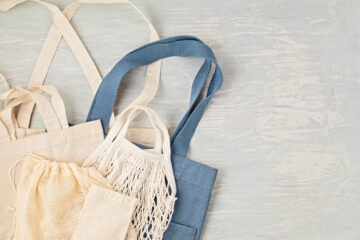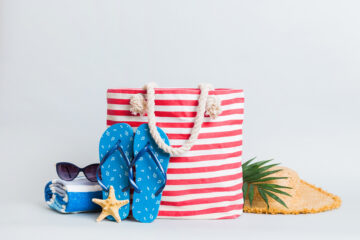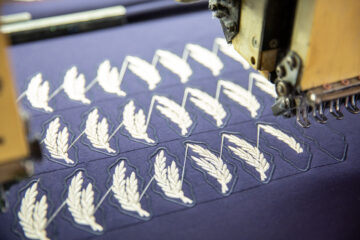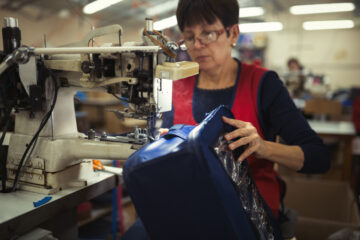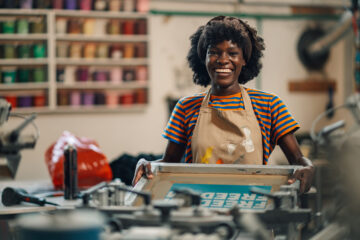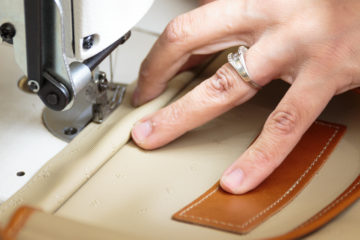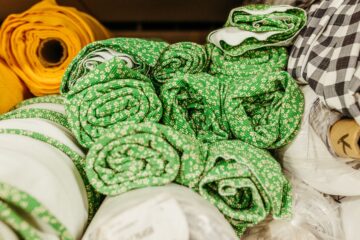Vegan Leather and Its Benefits
Vegan leather is a type of leather made without the use of any animal products. It is typically made from synthetic polyurethane, PVC, or plant-based materials such as pineapple, coconut, or cactus. Vegan leather has a similar appearance and texture to traditional leather and has advantages in small goods manufacturing. This article will examine vegan leather made from plant sources (plant-based leather), which has many advantages over traditional leather and PVC leather in small goods manufacturing.
Advantages of Using Plant-Based Leather in Manufacturing Small Goods
There are many advantages of using vegan leather, including the following:
- Plant-based leathers are environmentally friendly.
- Vegan leather is typically less expensive to produce than traditional leather.
- Plant-based leather can be just as durable as animal leather.
- Because vegan leather is uniform, there are no scars, bug bites, tick infestations, etc. This makes the cutting yield far more predictable.
The Marketability of Environmentally-Friendly Products
One of the primary benefits of using vegan leather instead of traditional animal-based leather is that it is environmentally friendly. Animal agriculture is considered one of the leading causes of global warming. Producing traditional leather involves chemical processes such as tanning and dyeing. In contrast, plant-based vegan leatherette can be manufactured using more sustainable methods that do not produce harmful emissions.
According to a recent report by First Insight and the Baker Retailing Center at the Wharton School of the University of Pennsylvania, consumers across all generations—from Baby Boomers to Gen Z—are now willing to spend more on sustainable products.
- 90% of Gen X consumers said they would be willing to spend at least 10% more on sustainable products.
- A desire to help the environment was the primary reason consumers purchase sustainable products and brands. Almost 30% say they want to improve the environment. 23% wish to reduce production waste. 22% want to reduce their carbon footprint. 17% are concerned with animal welfare.
Top fashion brands like Patagonia and Native Shoes have built their brand as eco-friendly companies that put the planet first. Other companies have also been listening to consumers and started offering sustainable products. According to a Grandview Research market report, the green technology and sustainability market is estimated to be more than $15.85 billion in 2022. It will grow at a rate of 22.4% between now and 2030.
Consumers’ desire for sustainable products makes plant-based leathers an intelligent, marketable choice for small goods manufacturers.
How does the price of plant-based leather compare to traditional leather?
Generally, vegan leather (specifically plant-based leather) is cheaper than traditional leather. This is because products like mushrooms, pineapples, and cacti require less room, water, and time to mature than cattle, and plant-based leathers are often produced from the waste parts of plants. For example, Piñatex (leather made from pineapple leaves) uses the waste parts of pineapple plants to improve farmers’ income and promote indigenous products.
Companies like Adidas and Gucci have seen the cost value of plant-based leather and are collaborating with leather manufacturers on new lines of mushroom leather. Other small goods manufacturers and fashion brands are turning to cactus leather, leather made from cereal crops, and even apple peel leather.
Mushroom leather is still developing and is expected to become less expensive as it moves toward mass production. Bolt Threads said its mushroom fabric costs about $25 a square foot, on par with premium calf leather. While we aren’t familiar with the $25/sqft calf leather, they feel it is competitive.
However, pineapple leather is much more affordable—a 20 sq. ft. cowhide costs around $150, while Pineapple leather of the same size costs approximately $65.
How does the durability of plant-based leather compare to animal leather?
There is no disputing the fact that animal leather is tough. High-quality, high-end leather can last for generations if proper care is taken. However, animal leather is sensitive to fluctuations in temperature and can show stretch marks over time. Vegan leather has had a reputation for cracking, but this is primarily PVC leather. Plant-based leather shows promise as a durable alternative to animal leather.
For example, due to the high cellulose content and tensile strength of pineapple leaves, products made with Piñatex are durable and long-lasting. Similarly, Desserto® Cactus Leather has shown remarkable durability, withstanding daily wear and tear without significant degradation. Its combination of flexibility and strength makes it ideal for handbags, wallets, and accessories that require long-term use.
According to one professional leather worker, the primary differences between working with animal leather and vegan leather are as follows:
| Comparison | Animal Leather | Vegan Leather |
| Appearance | Visual Imperfections | Uniform Finishing |
| Durability | More durable in the long term | Less delicate in the short term |
| Cleaning | Needs specialized cleaning care | It can be cleaned with a wide variety of alcohol-based products |
| Malleability | Stretches and Shrinks Naturally | It can be structurally damaged with too much form manipulation |
Leather Comparison Chart
Small goods manufacturers will find that plant-based leather can be a durable choice for certain small leather goods. The uniform finishing and easy cleaning work well for handbags, wallets, and leather embellishments.
Drawbacks to Using Plant-Based Leather in Small Goods Manufacturing
We would be remiss if we didn’t mention some of the drawbacks to using plant-based vegan leather in small goods manufacturing. For example, plant-based leather is still being developed, and while prices are dropping, new sources may be similar to animal leather in price.
Some consumer reviews mention that vegan leather (PVC and plant-based) is less breathable or malleable than traditional leather, which absorbs water. Traditional leather tends to soften, but plant-based malleability stays consistent, and some vegan leather (primarily PVC) cracks over time.
Vegan leather can also be more challenging to work with and is often less forgiving than real leather when it comes to mistakes. However, Desserto® Cactus Leather offers a unique advantage over other vegan leathers. It is flexible and durable, making it applicable to a range of leather goods.
Call Softline Today!
In summary, plant-based leather is an excellent choice for small goods manufacturers looking for an environmentally friendly, less expensive, and durable option. With advancements like Desserto® Cactus Leather, manufacturers can now access high-quality, sustainable alternatives that offer both durability and aesthetic appeal. If you are interested in using plant-based leather in your manufacturing process, contact Softline Brand Partners. We would be happy to discuss the options with you and help you get started with these sustainable materials.

